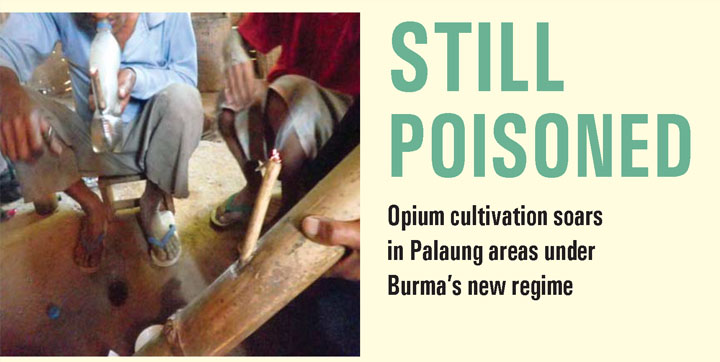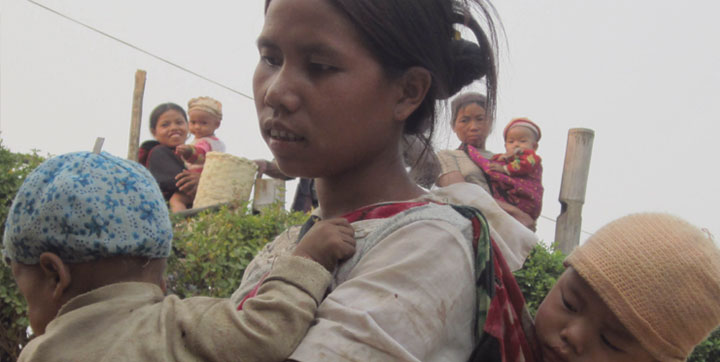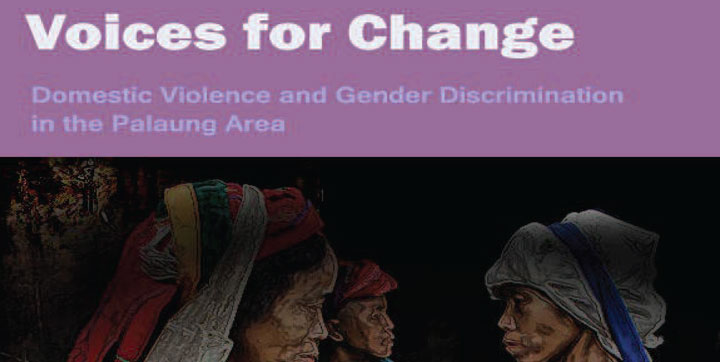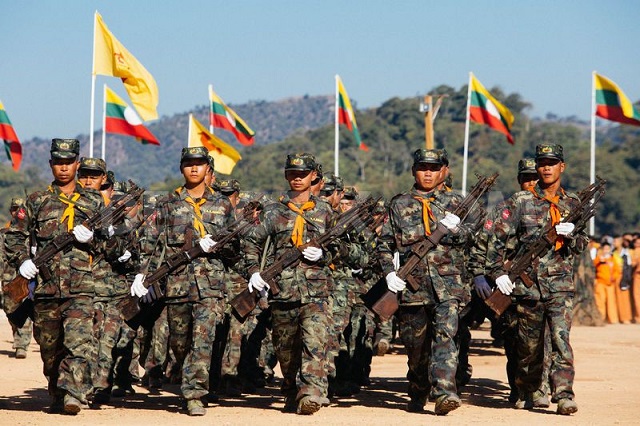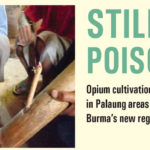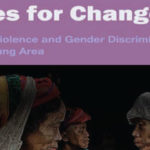STILL POISONED
Introduction
In 2006, PWO released its Poisoned Flowers report detailing the impacts of spiralling drug addiction on Palaung women in Burma’s northern Shan State. After the publication of Poisoned Flowers, the situation in the Palaung community deteriorated further. PWO began researching the surge in opium cultivation in regime-controlled areas of Burma, releasing our Poisoned Hills report in 2010. Despite the report attracting widespread attention from the international media, the situation in the Palaung area is today worse than ever, as Burma’s military-controlled government maintains a tight authoritarian grip on all aspects of politics, society and the economy.
The regime’s efforts to combat Burma’s drugs problem are characteristic of the new military-controlled government’s token efforts to be seen as reformist; despite destroying a small proportion of opium farms and arresting drug dealers and addicts, the military regime simply collects bribes in exchange for their release. Elected representatives such as ‘Pansay’ Kyaw Myint, who came to power in the November 2010 election, promote the cultivation of opium in northern Shan State whilst families and communities are torn apart by drug addiction. As opium cultivation and addiction continue to spiral out of control, it is clear that Burma’s so-called ‘civilian’ government have no intention to break away from the policies of their predecessors, leaving the Burmese people to suffer at the hands of their own government.
PWO will continue to raise awareness of the devastating impact of opium cultivation and addiction on the Palaung community. We have compiled this brief update, detailing our latest research findings about opium cultivation and addiction in Namkham during the 2010-2011 opium growing season, and analysing the links between the increase in opium cultivation and the political situation in northern Shan State following the November 2010 elections.

